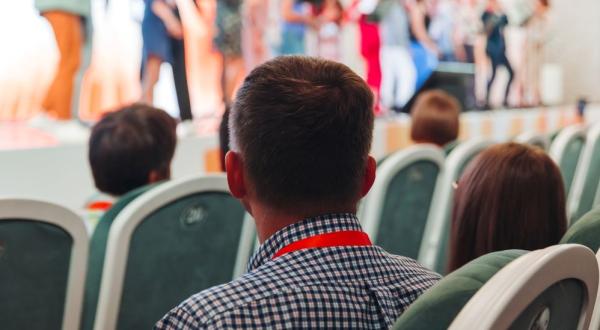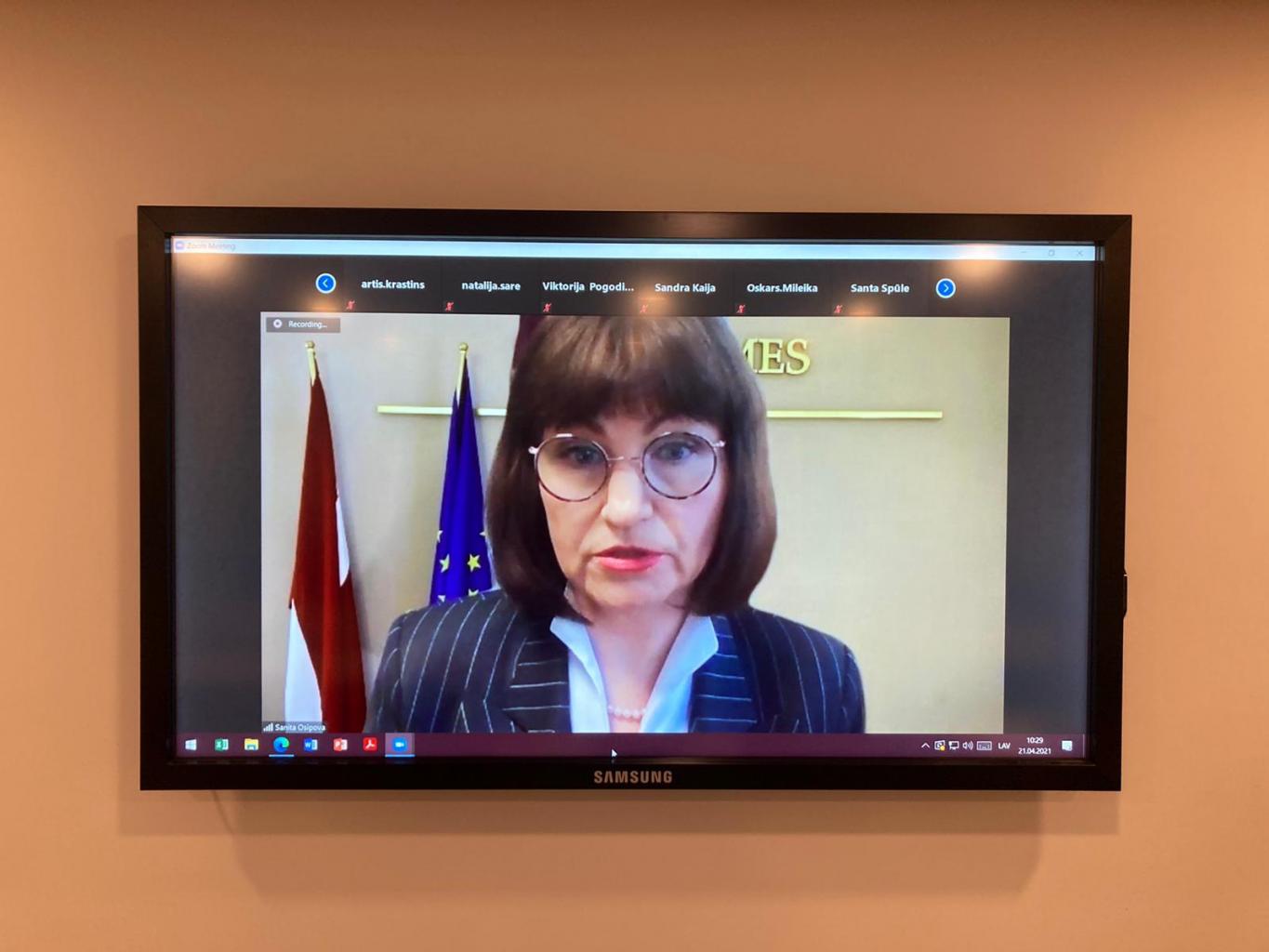Annual Conference on the Topical Issues of the Legal System Held Online
On 21 April, an international scientific conference on the topical issues of the legal system was organised by the Rīga Stradiņš University (RSU) Faculty of Law, Siedlce University of Natural Sciences and Humanities (Poland), Yaroslav Mudryi National Law University (Ukraine), St. Cyril and St. Methodius University of Veliko Tarnovo (Bulgaria), Mykolas Romeris University (Lithuania) and The College of Law.
The conference was held online and attracted more than 200 participants from six countries – Estonia, Georgia, Latvia, Lithuania, Ukraine and the United States.
The plenary sessions started with a very interesting lecture “Who does not deserve a place in an inclusive society?” held by the President of the Constitutional Court of the Republic of Latvia Sanita Osipova (pictured). In her speech, she addressed the legal limitations that convicted people face in the case law of the Constitutional Court. Osipova pointed out that the 20th century witnessed a fundamental change in the understanding of state and society: women, ethnic minorities, people of different religions and skin colours gained equality, until a modern multicultural civil society gradually emerged, where demands for equality and the principle of non-discrimination prevail.
Examining the Constitutional Court’s case law from the last decade from the point of view of the human dignity and equality, it can clearly be seen that the most marginalised social group in inclusive societies appears to be convicted people. These people are members of our society too, and they are entitled to equality. The limitations on their rights must be justified by considering human dignity requirements.
The Minister for Interior, Sandis Ģirģens, devoted his speech to strengthening the cooperation between the state and local governments in order to strengthen national security. Ameet Kabrawala, the U.S. Federal Prosecutor and Regional Resident Legal Advisor at the US Embassy in Riga, stressed the need to conduct and develop international cooperation in the fight against money laundering. Professor Viktoras Justickis from Lithuania (currently a visiting professor at the RSU Faculty of Law) analysed various legal aspects of medical law related to the spread of COVID-19. Georgian representative David Jandieri analysed the judgment of the European Court of Human Rights in the case Georgia v. Russia in connection with the Russian invasion of Georgian territory in 2008, while a representative from Yaroslav Mudryi National Law University Nataliya Gutorova gave an insight into the guidelines of a new draft of Criminal Code of Ukraine. The plenary session was concluded by Tālavs Jundzis who addressed topical issues related to discussions on higher education reforms in Latvia.
After the plenary session, discussions continued in five sections (civil law, criminal law, national and international law, police law, operational work).
Related news
 Experts from across Europe will participate in this year's Rare Disease ForumFor RSU Employees, Conferences, workshops, Research, For Students
Experts from across Europe will participate in this year's Rare Disease ForumFor RSU Employees, Conferences, workshops, Research, For Students





